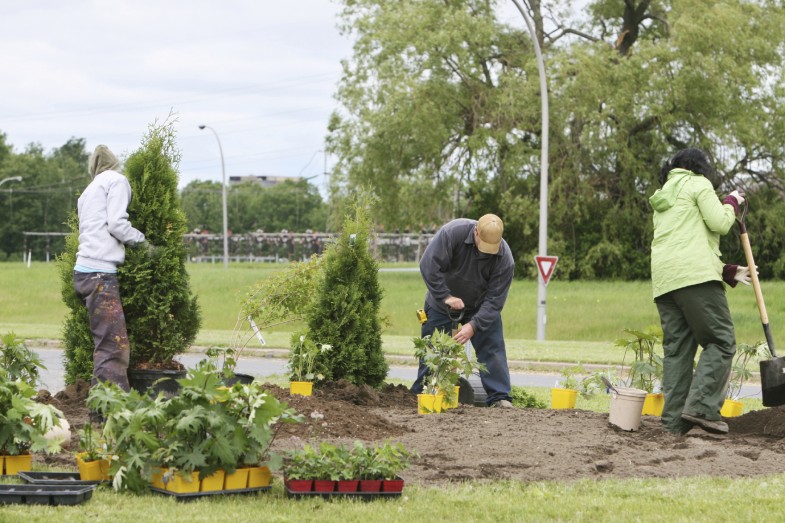The international Economics and the Commons Conference is a commons in itself, deliberately planned to include ample time for discussion and convivial spaces for attendees to get to know one another.
Rather than the usual Q-and-A at the close of a presentation, we are encouraged to share our own ideas with the audience. This morning began with fresh perspectives on caregiving, public infrastructure and the dual role of the commons as both a reform and revolutionary movement, followed by a spate of equally compelling observations.
Anne Snick, coordinator of the Flora Network of Expertise on Gender, Sustainability and Interconnected Economics, agreed that services like parenting and caring for sick and aged people must be recognized as at least as important as paid labor in the workforce. But she added that caring for the earth should be more revered and rewarded too. It is just as time-consuming, unheralded and essential.
Pat Conaty, a fellow of the New Economics Foundation who lives in Wales, reminded everyone that this movement is not starting from scratch— the commons is in sync with the missions of powerful institutions, which could become closer partners in creating a more sustainable, equitable, sharing world.
A number of us joined Conaty at for a lengthy conversation over lunch, where he outlined four already existing sectors that could potentially increase the capacity of commons initiatives.
1. Cooperatives With 1 billion members and 3 billion users around the globe, co-ops may be the world’s biggest engine for economic equity.
2. Municipalities This is “small ‘g’ government”, Conaty says, which is trusted by most people and able to work in a more collaborative, co-creating way.
3. Trade Unions A still-powerful force with the ability to challenge the power and policies of both corporations and the state (which today is all-too-frequently controlled by corporations).
4. Civil Society and Community Organizations A flourishing ecosystem of initiatives already sharing the commons perspective that some things matter more than profit.








